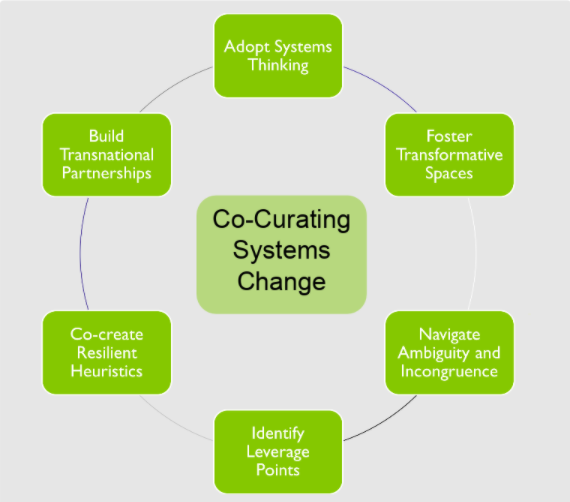Advancing Social Innovation
Catalysts for Social and Economic Change
Health Systems Innovation
Co-curating Systems Change
Co-curating Systems Change: Leveraging Social Innovation Organisations to enable African Health Systems Entrepreneurship
Understanding social entrepreneurship and health systems change Social innovators and entrepreneurs focused on health services do not conduct their activities in isolation. Rather, these actors work within complex systems that expand outwards from the local level, to the regional, the national, and ultimately to the global level. It is important to understand how these actors work within the systems in which they operate, since this informs how they partner with one another, how programs and services are integrated with government health systems, and how these actions impact and influence service delivery at the frontlines of healthcare.
By applying a systems lens to social entrepreneurship, actors within the health sector are able to “remove[s] the organization or even a programme as the central object of focus, and instead focuses on influencing the social system itself” as a mechanism for achieving true systemic change. This distance allows actors to build capacity as system influencers in developing and promoting linkages and networks, rather than on focusing on delivering their solution to all possible beneficiaries and end users.
Transforming healthcare delivery systems through social innovation
Social innovation is a useful approach through which to view health systems integration work, as it is agnostic to the type of innovation, the sector, the inventing actor or the organisational implementation structure. Rather it is centred on a pressing health need, as experienced by people in a specific context, and focussed on strengthening care delivery and ultimately improving health outcomes. These innovations are more likely to have the ability to be integrated into health systems at scale.
Six Lessons for Systemic Change in HSE

- Adopt habits of mind and practice that cultivate complex adaptive systems
- Co-curate authentic co-operation by fostering transformative spaces for relational flourishing
- Navigate ambiguity and incongruence with internal and external engagements
- Cultivate collaborative capacity for identifying health systems leverage points
- Co-create resilient systems change intervention heuristics
- Build transnational cross-cutting partnerships in appreciation of different systems entrepreneurs
Design & Approach
Project Design
A total of 5 organisations using mobile technology health innovations in East and West Africa, were selected for participation in this project. These organisations were selected following a limited call to pre-identified advanced initiatives demonstrating impact, with efficient utilization of technology, the ability to scale and measure, and importantly with the potential capacity to meaningfully engage with government.
Project Approach
The main research methodology was a descriptive and exploratory case study inquiry to support the understanding of how social innovation organizations in Africa are working towards greater integration of their interventions across and within health systems, and how this can contribute to an articulated understanding of health systems integration work.
Data collection included case study interviews, site visits, peer-to-peer learning visits, in-person cohort workshops and regular cohort conference calls.
To keep in mind when working with a systems change environment
• Systems work is complex and time-intensive;
• It requires the interaction of many factors, including competing priorities, funding, and timelines;
• There is a need for boundaryless systems engagement (looking beyond sector-specific impact);
• Wedge issues, such as the use of technology, can be critical enablers of government integration; and
• Importantly, there is a need for greater exploration around how funders and partners think about sectoral systemic work and how conversations around funding such work could take place
From change making to systems co-curating
Engage in the following practices:
• Awareness of culture in enabling change and in holding social problems in place
• Awareness of institutional resistance and outdated narratives
• From detailed design to experiment and prototyping.
• Seek to deepen collaboration by working beyond organisational and sector silos to shift culture and achieve social impact.
• Convene unusual and diverse partners to explore new possibilities.
• Illuminate and integrate new strategies for deep and durable change that could lead to transformative change.
What is Systems Entrepreneurship?
Systems entrepreneurs find opportunities to leverage innovative ideas for greater systems impact by means of different roles in implementing alternative approaches to the resources of the dominant system to impact the underlying structure at a systemic scale, thereby shifting the rules, norms, and values that make up social systems.
References
Rayner Schweer, C., Bonnici, F., & Milligan, K. (2017). Beyond organizational scale: How social entrepreneurs create systems change. World Economic Forum, (May), 1–51
Cloete, D. (2017). Towards re-imagining the roles of change agents from a critical complexity perspective: An exploratory action research approach.